- Home
- Tim Willocks
Religion: A Novel Page 2
Religion: A Novel Read online
Page 2
From the chaos beyond the forge-house door he heard a voice—closer than the rest—shouting out to God, but not for His mercy. Calling, rather, on His vengeance and His wrath. It was the first voice Mattias had ever heard. It was his mother’s.
Mattias squeezed the sodden hilt in his hand. The tang’s heat was tolerable. The dagger’s final quench had not been purest dew but a murderer’s blood, and if its destiny and purpose were now other than he’d planned, so too were his own. And he wondered then, as he would wonder always, if it were not his forging of this Devil’s blade that had brought this fatal doom upon his loved ones. He searched for the soul with which he’d woken and found it not. He searched for a prayer, but his tongue didn’t move. Something had been torn from within which he hadn’t known was there until the hole it left behind howled in sorrow. Yet gone that something was, and not even God could restore it. His mother’s fury pierced him. In fury—not in sorrow—had his mother chosen to die. Her fury called him to her side. He walked to the door and stooped to cover Britta with his coat. Britta at least had died whole, with a song on her lips and the joy of creation in her heart. There was an angel in the blade along with a devil. He’d take her with him. He’d take angel and devil both.
He stepped out into the cold and steam rose from the black dagger in his fist, as if the forge contained a shaft bored up from Hell and he were a demon assassin newly ascended. The yard was empty. The heavens at the rimrock’s edge were reefed in vermilion cloud. From the village pillars of smoke quavered skyward and with them cries of anguish and crackles of flame. He walked across the cobbles, sick with fear. Fear of whatever vileness afflicted his mother. Fear of shame. Of cowardice. Of the knowledge that he couldn’t save her. Of the darkness that had housed itself inside his spirit. Yet the darkness spoke with a feral power that brooked neither refusal nor hesitation.
Plunge in, the darkness said.
Mattias turned and looked back at the forge. For the first time in his life he saw a drab stone hut. A drab stone hut with the corpse of his sister, and the corpse of a man he had killed, inside.
Like the blade in the quench.
Plunge in.
In the kitchen little Gerta lay tangled on the hearthstone. Her features were twisted in bewilderment and her puddled blood smoked foul among the coals. He straightened her fragile limbs and knelt and kissed her mouth. He covered her corpse with the blanket he’d slept in. He plunged on. Across the ransacked room the door hung creaking from one hinge. In the dirt outside was a melee. He stepped closer. He glimpsed the village priest, Father Giorgi, for whom he served at altar on a Sunday morning. Father Giorgi was shouting at assailants unseen, with a crucifix upraised in his fists. A squat figure hacked him in the neck and Father Giorgi fell. Mattias stepped closer. What kind of man would kill a priest? Then he stopped and wheeled away, his mind erased in an instant of all he’d seen.
He blinked and heaved for breath and the forbidden picture returned. His mother’s nude body, her pale breasts and thick dark teats. Her pale belly, the hair between her legs. Shame writhed in his gut with the urge to run. Across the yard, beyond the forge, to the woods where they’d never find him. The darkness that was now his only guide and counselor made him turn back to the door and he looked again.
A horse, pierced with arrows, lay dying on its side, its great head flapping and its eyes rolling wide above the pink froth bubbling from its muzzle. Nearby sprawled a villager, also pierced, as if in flight, and by him Father Giorgi in a widening pool. Across the horse’s carcass, as if upon a mattress obscene, lay his mother. Her copper hair tossed as she fought against the four men cursing and struggling to hold her down. Her stark naked skin was marble white and slashed with scratches and blotched with the indigo welts of brutish fingers. Her face was drawn. Her teeth were bloody. Her shocking blue eyes were wild. She didn’t see Mattias, and while part of him yearned for those wild blue eyes to meet his own, he knew that the knowledge of his witness would drain her defiance, and her defiance was the last gift she would give him.
Someone punched her in the head and screamed in her ear and she turned and spit in his face and the sputum was crimson. A fifth man knelt between her legs, his breeches pulled down. And all of them shouting—at one another, at her, one with a twisting finger up his nose—in their yammering alien tongue. They were raping a woman dragged half sleeping from her bed, yet their manner was like herdsmen freeing a stranded calf from a bog: gesticulating, blaming, bellowing encouragement and advice; their faces innocent of malice and vacant of pity. The brute between her legs lost patience, for she wedged her knee against his chest and wouldn’t let him take her. He pulled a knife from his boot and pushed up her breast and took aim and ran her through her heart. No one tried to stop him. No one complained. His mother stopped moving and her head flopped back. Mattias wanted to sob—but his breath was frozen in his lungs. The brute dropped his knife and reached for his crotch and he slotted something stiff inside her and started pumping. And someone must have said something funny, for they all of them laughed.
Mattias held back the tears he hadn’t earned. He’d failed his sisters. He’d failed his father. His mother’s corpse lay violated by beasts. He alone was left standing, dispossessed and powerless and lost. He came to as he realized that he’d pushed the tip of the dagger into his palm. His blood was bright against the crusting filth on his fingers. His pain was clean and true and it cleared his mind. His mother had denied them what they’d wanted even more than her flesh: her surrender and humiliation. The laying of her pride. The desire to be close to her soul overwhelmed him. The desire for death and in death that companionship he treasured more dearly than life. He clasped the blade against his arm where it wouldn’t be seen. Without haste—for if the blade was yet warm, his blood was now cold—he waded into atrocity to claim his share.
The first creature shuddered and whooped in a bestial spasm and the others cheered, and he rose to his feet and staggered back with his breeches around his knees. A second beast knelt to penetrate his mother and the other three groped her thighs and breasts to arouse themselves for their turn. All but the second looked at Mattias. They saw nothing but a wretched boy. From the direction of the village came the sound of hooves at the canter and this concerned them more, but the hooves concerned Mattias not at all. The darkness rose within him and he felt free.
He plunged in.
After hammer and tongs the blade seemed delicate as paper, yet he punched it twice through the first devil’s back as if his ribs were woven from straw. The creature sighed and his breeches snared his ankles and he dropped to his hands and knees with his arse in the air and stared at the ground between his elbows and panted like a heat-exhausted dog. Mattias kicked him over in the dirt and plunged on.
The second creature grunted between his mother’s splayed legs. He knew nothing was amiss until Mattias scraped the cap from his skull and grabbed him by the hair and bent him backward. Mattias saw a bewildered sense of injustice in his eyes, as of a child dragged unawares from a pot of jam, then he punched the blade through his upturned cheek and pulled it free and punched again and an eye popped forth and dangled from its socket by the string. Working his arm with the rhythm of the forge he plowed the childlike face with bleeding slits, splashing the heel of his fist in the screaming mask as he stabbed the dagger through teeth and tongue and bones, and through and through the fluttering hands that the man flung up for protection.
Mattias paused and heaved for he’d forgotten to breathe. He looked at the other three devils, and found them watching him agape. A wordless cry escaped Mattias’s throat, for he was now more beast than they, and he cast the yowling blind man to the mud. The three backed away on the far side of the horse and one came to his senses and unslung a bow from his back. He fumbled an arrow from his sash and it dropped to the ground. Mattias turned away and looked at his mother and his madness was expunged. He knelt and took her hand and pressed her work-worn fingers to his cheek. The fingers were yet warm w
ith life and Hope knifed his heart. He looked up: but her wild blue eyes stared sightless, and the knife twisted, and he choked into the hand held to his face. The thud of hooves pounded in his ears but he was beyond all the things of this world. From this world, the touch of his mother’s hand was all he needed.
His head jerked up to a crash as loud as thunder. The brute nocking the arrow to his bow spun into the ground, his skull dashed apart and gray slop spilling down his shoulders as he fell. The two remaining rapists dropped to their knees amid a drift of blue smoke and they babbled like the crazed as they crammed their foreheads to the dirt.
Mattias turned and saw a sight such as never he’d seen.
A man, though he seemed a god, sat astride a gray Arabian stallion, the twin-plumed breath from the bores of its nose giving both the look of phantoms in a tale. The rider was young and proud and dark of complexion, with high, fine cheekbones and a beard like the blade of a spear. He wore a scarlet caftan lined and trimmed in sable and baggy scarlet breeches and yellow boots, and his snow-white turban was garnished with a spray of diamonds that flashed when he moved. At his waist was a curved sword whose hilt and scabbard were alive with precious stones. In his hand smoked a long-barreled pistol, its fittings chased with silver. His eyes were brown and fixed on Mattias’s own, and in them was something that looked like admiration, and something more—though it could not be so—that felt to Mattias like Love.
The brown gaze did not waver and Mattias did not blink. And in this moment the soul of the man and the soul of the boy reached out and were entwined, for no good reason that either might explain and with a power that neither dared question, for it came from God.
In time Mattias would learn that this warrior was a captain of the Sari Bayrak, most ancient and valorous guardians of the Sultan’s arms, and that his name was Abbas bin Murad. For now he was simply a man. A man whose heart contained no trace of malice.
Behind the captain sat two more scarlet riders. In the street beyond, villagers fought fires and rushed back and forth in dismay, dragging furniture from hovels and ferrying children and old folk from the flames. Riding through this tumult like paladins among sheep, a dozen more scarlet horsemen wielded lances and whips as they harried the chastened foot soldiers from their pillage. Abbas sheathed his pistol in a saddle-mounted sleeve. He looked at the woman draped violate and nude across the horse. He looked again at Mattias and he spoke. His tongue was not the same as that of the devils and though Mattias didn’t know the words, he knew what he asked.
“This is your mother?”
Mattias swallowed and nodded.
Abbas saw the dagger in his hand, and his shirt plastered to his body with spilled blood. Abbas pursed his lips and shook his head. He glanced beyond Mattias and Mattias turned: the first man he’d stabbed lay unmoving. The second crawled half naked in the dirt, blind and faceless and mewling in self-pity through rended lips. Abbas made a motion with his hand. One of his lieutenants rode forward and drew his sword and Mattias stared in wonder at the flawless damascene blade. The lieutenant stopped by the mewling wretch and leaned forward. The etched sword rose and fell with hardly a sound and a head rolled into the gutter in a spate of gore.
Abbas rode over to Mattias and held out his hand.
Mattias let go of his mother and wiped the blade on his sleeve and stripped the tang of its rags and wiped that too. He held the blade by the tip and gave it to Abbas. He felt no fear. The moment Abbas touched the dagger his brow rose in surprise. He held the flat against the back of his hand and surprise was confirmed. Mattias realized the steel was still warm. Abbas gestured with the dagger.
“You made this?”
Again Mattias understood the question if not the words. He nodded. And again Abbas pursed his lips. He nudged his horse toward the house and leaned across and slid three inches of the dagger into a crack between door frame and wall. He threw his weight against the tang and Mattias flinched as the blade canted over, folding far farther than he would dare bend it, the tang almost flat to the wall, and panic lanced through his gut as the steel snapped—but the steel did not snap. And when Abbas let go, the blade sprang back to the true. Abbas withdrew the dagger and examined it again and looked at Mattias. And both knew he’d forged a piece of appalling beauty. Then the dagger vanished into the captain’s dolama and Mattias knew he’d never see it again.
Abbas gave orders and Mattias watched as the second lieutenant wheeled and rode away. The first, who hadn’t sheathed his damask blade, trotted to the two kneeling rapists, they whose lust would never be slaked. They blubbered and pleaded and befouled themselves, and he prodded them into a stumbling run and chivied them back down the street.
Abbas turned and reached behind the cantle and unhitched a milk-white blanket there rolled. He tossed it to Mattias and Mattias caught it. It was woven of the finest lambs’ wool. Mattias had never handled an object of such high quality before and so gentle was its touch to his roughened hands that he feared he’d damage it. He stared at Abbas blankly, baffled by this gift. Abbas gestured to his mother, spread-eagled and outraged in the shambles.
Mattias felt his throat go tight and tears stung his eyes, for the gift was not of a blanket but of a woman’s dignity, and this kindness pierced him to the core. But a warning flashed on the captain’s face and on instinct Mattias understood. He pulled the tears back inside. He didn’t let them fall. And Abbas saw this and again his estimation rose and he nodded. Mattias turned and unfurled the blanket and it fell like a caress across his mother. His tears rose again as she vanished forever beneath it and again he quelled them down. She was dead, and yet not dead, for she filled his heart with a love that burst its buckles and he wondered if she was even now in Heaven and if God would ever let him see her again. Then he heard Abbas’s voice and turned. Abbas repeated the phrase. And though he didn’t understand, Mattias felt the comfort of their intention. He remembered their sound. In the months to come he would hear them again many times and would learn their meaning.
“All flesh is dust,” said Abbas.
From his saddlebag Abbas produced a book. Its green leather binding was worked in a golden script of fabulous design and as if letting God direct his hand he opened it at random. His eyes scanned the chosen page and stopped, as if arrested by something noble and sacred and apt, and he looked up from the book and pointed at the boy.
He said, “Ibrahim.”
Mattias stared back without comprehension.
Abbas pointed again with an insistent gesture: “Ibrahim.”
Mattias realized that this was the name by which the captain intended to call him. The name, in fact, that Allah had decreed he be called, for the book randomly opened was the Holy Koran. Mattias blinked. His mother was gone. Britta and Gerta were gone. His home was gone. And his father would return to a howling pit where he’d left prosperity and kin. The scarlet captain waited on his tall Arabian gray. Mattias stabbed a finger at his own chest.
He said, “Ibrahim.”
With this, gone too was the name that his father had given him.
Abbas nodded and closed the holy book and stowed it. The lieutenant returned with a saddled horse and he handed the reins to Mattias and Mattias realized he was to leave with these scarlet riders, and the wide world gaped before him like a chasm. Abbas was not offering him a choice. Rather, Mattias had been chosen. He did not falter. He mounted the horse and felt its living strength between his thighs and from this high prospect the world was already changed and more than he knew. He bent to the horse’s ear and, as his father had taught him to say before the shoeing, he whispered, “Don’t be afraid, my friend.”
Abbas wheeled away and the lieutenant followed. Mattias looked down at the blanket-shrouded body and thought of his father. He’d never know the magic his father would have taught him, nor the love that was the greatest of his spells. Had the black blade snapped—had Mattias let those tears fall down his cheeks—perhaps the riders would have left him to bury the slain. But this he c
ould not know, for he was a boy. Mattias stifled his anguish and urged his new mount onward. He did not once look back. Though he could not know this either, War was now his master and his trade, and War was jealous, and demanded love only of itself.
As they trotted down the street, past burning hovels and villagers with gazes cast down, Mattias saw the remains of the last two devils. Their decapitated bodies soaked in enormous puddles of blood and the whited eyes of their heads stared into the mud. Their chastened comrades stood in sullen ranks under the guns of their Turkish betters. These men, Mattias would learn, were the irregulars who flocked to the Sultan’s banner in search of plunder, landless failures and criminals, Walachians and Bulgars, the floating scum without discipline or skill who crave the wages of war. The execution was to demonstrate that this was now the fiefdom of the Sultan and that all that lay upon it belonged to him. Every grain of wheat, every cup of wine, every sheep, every mule, every village. Every man, woman, and child. Every drop of rain that fell. All this belonged to his August Majesty, as, now, did belong young Ibrahim.
Thus, in the year of 1540, Mattias the blacksmith’s son became a devshirme: a Christian boy gathered in the Gathering and drafted for the Slaves of the Gate. Across many strange lands he would travel, and many strange Things he would see, before the fabled minarets of Old Stambouli rose gleaming in the sun by the Golden Horn. Because he was a killer before he was a man, he would train in the Enderun of Topkapi Saray. He would join the violent brotherhood of the janissaries. He would learn strange tongues and customs and the many arts of war. He would learn that God is but One and that Mohammed is His Prophet and would yearn to fight and die in Allah’s name. For the unknown fate toward which he rode was to dedicate his life to God’s Shadow on This Earth. To the Padishah of the White Sea and the Black. To the Refuge of All the People in the World. To the Sultan of Sultans and King of Kings. To the Lawgiver, the Magnificent. To the Emperor of the Ottomans, Suleiman Shah.

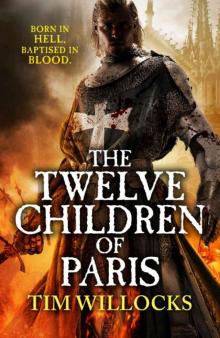 Tannhauser 02: The Twelve Children of Paris
Tannhauser 02: The Twelve Children of Paris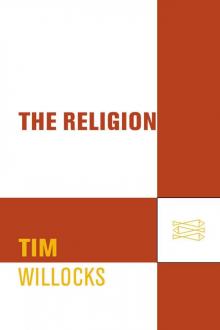 The Religion
The Religion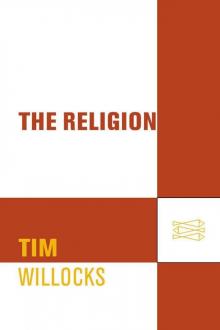 Tim Willocks
Tim Willocks Doglands
Doglands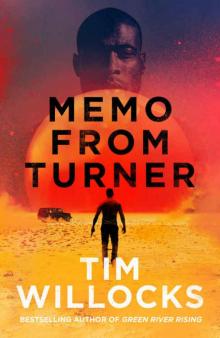 Memo From Turner
Memo From Turner Bloodstained Kings
Bloodstained Kings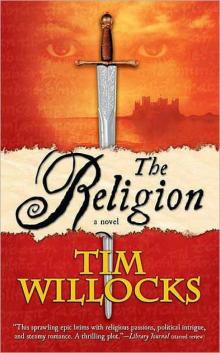 The Religion: A Novel
The Religion: A Novel Blood-Stained Kings
Blood-Stained Kings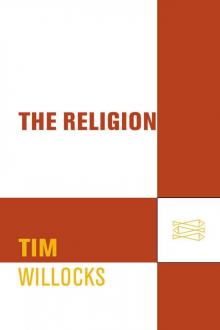 Religion: A Novel
Religion: A Novel